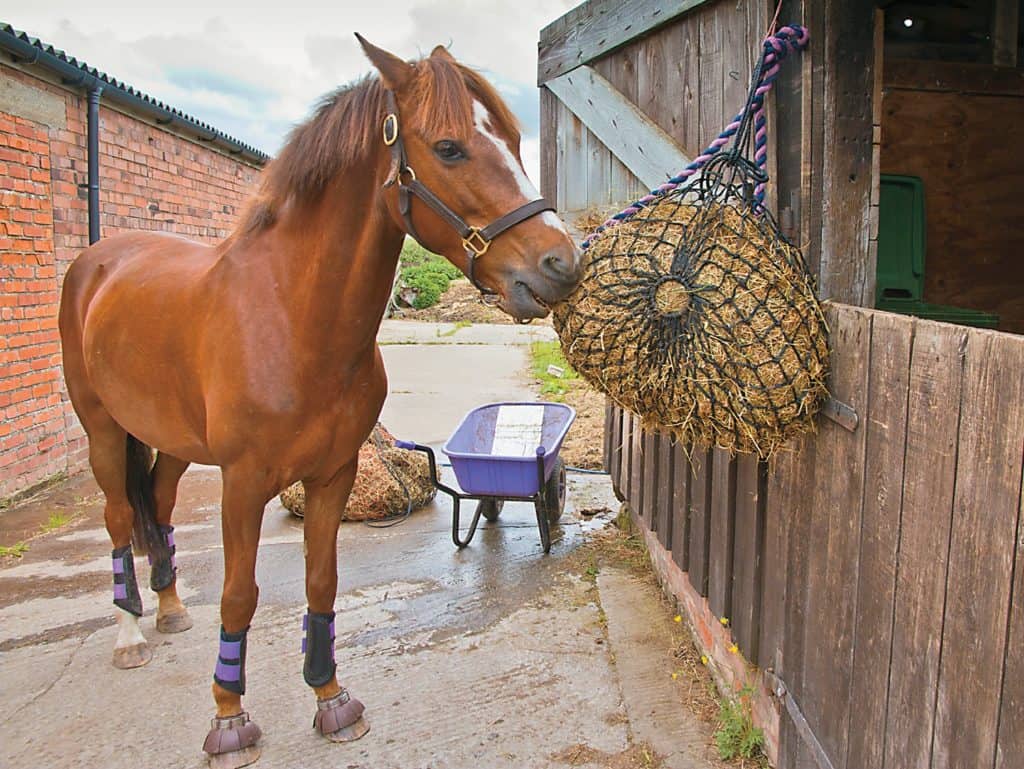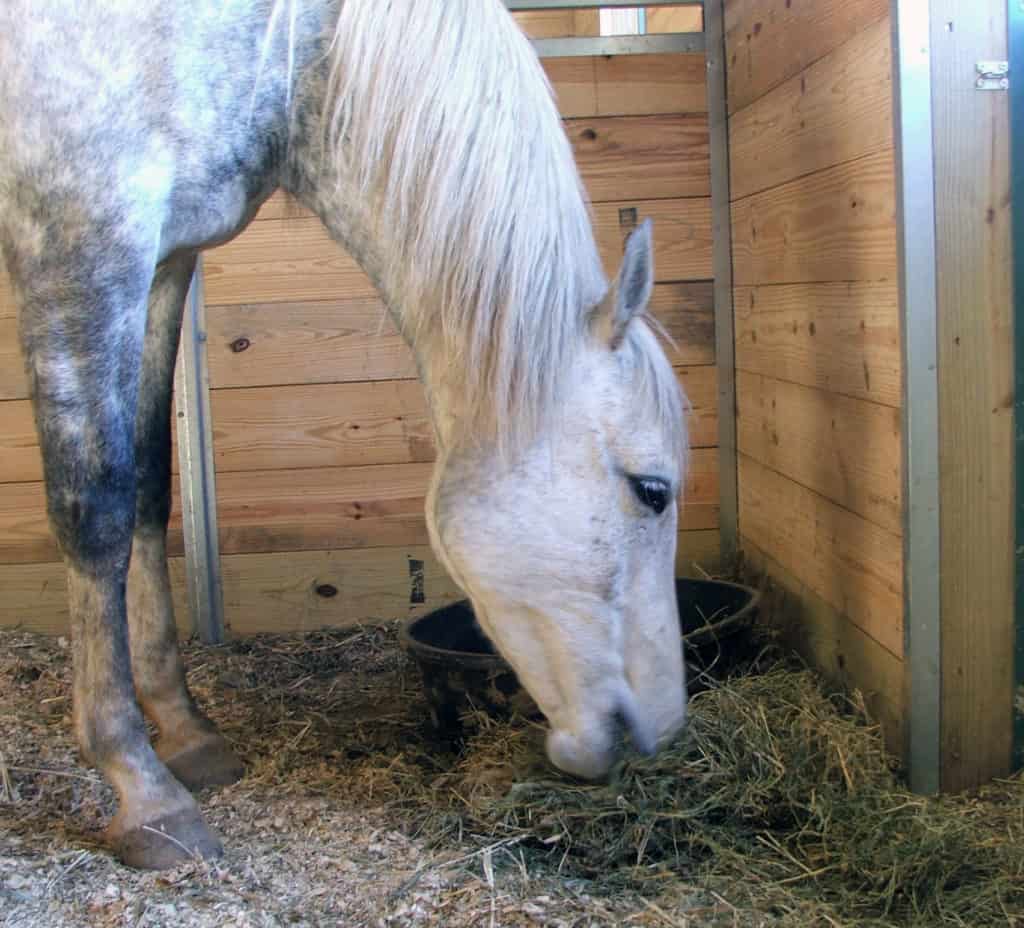
5 Ways to Improve Your Horse’s Diet in the New Year
When it comes to feeding your horses, don’t make the same mistakes you’ve made in the past in the new year.

When it comes to feeding your horses, don’t make the same mistakes you’ve made in the past in the new year.

Find videos on horse wounds, body condition scoring, equine gastric glandular disease, hoof adaptability, feeding sick horses, caring for old horses, and more.

Fats serve many important functions for horses, from increasing calorie consumption to reducing gastric ulcer severity.

In the past 30 years, researchers have made great strides in understanding gastric ulcers. Those findings and ones yet to be made can help improve horse health and welfare now and into the future.

How to unravel the reason behind your horse’s head-scratching weight loss.

Take steps to manage your horse’s weight and behavior while he’s cooped up.

Common feeding practices could be causing your horse’s stomach acid levels to rise.

Horses that don’t compete aren’t immune to gastric ulcer formation. Here’s what to watch for.

A brief period of fasting prior to omeprazole administration could help maximize drug absorption and, thus, efficacy.

An ulcer is an area of damaged and eroded tissue that leaves behind a painful divot (think of a canker sore or a bed sore). In this special report, take a “closer look” at gastric ulcers, an all-too-common equine stomach condition.

An automated feeder that provides grain in multiple small meals throughout the day might help reduce the prevalence of gastric ulcers in horses in training.

A study shows that “ulcerated” horses didn’t seem to look or act significantly different from healthy horses.

Learn about special characteristics of each part of the horse’s digestive tract and different medical conditions that can develop there.

Many gastric-support supplements include pectin and lecithins. Find out how they might help horses with EGUS.

Of the 323 respondents, only 81 (25%) have had a gastroscopy performed on their horse to check for ulcers.

Learn about keeping OTTBs healthy and happy as they move into new disciplines. We’ll cover feeding, vet care, handling, and more!
Stay on top of the most recent Horse Health news with
"*" indicates required fields